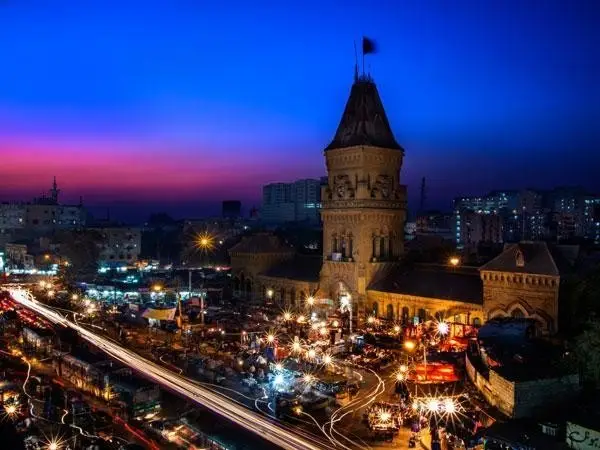Bangladesh’s digital infrastructure services, including towers, fibre networks, submarine cables, and data centres, hold significant potential but remain hindered by mismanagement and corruption. A few dominant players maintain monopolistic control, benefitting financially but not contributing to national interests or digital progress. With mobile penetration still below 60% and fixed-line broadband growing slowly, foreign investors remain hesitant.
The country offers a massive opportunity for Foreign Direct Investment (FDI), yet policies are often shaped by political interests rather than focusing on national growth. By eliminating cronyism, encouraging competition, and fostering innovation, Bangladesh can achieve balanced growth, create jobs, and improve financial inclusion, bringing the country closer to its “Digital Bangladesh” vision.
Overhaul of Tower Policy Needed
Bangladesh’s tower policy is significantly hindering the telecom sector’s growth. Of the country’s 45,000 towers, only 22,000 are managed by tower companies, with Edotco dominating the market. Mobile network operators (MNOs) frequently hoard their towers and fail to share, limiting industry-wide collaboration. Globally, tower companies maintain higher sharing ratios, underscoring the need for reform.
To address these challenges, several recommendations should be implemented:
- Mandatory site sharing: MNOs should be required to share towers within a set timeframe. Large MNOs often hoard strategic locations, forcing smaller operators to build redundant infrastructure. This wastes resources and drives up operational costs.
- Empower tower companies (TowerCos): Policy changes should prioritize TowerCos in managing infrastructure. If a TowerCo fails to deliver a site on time, MNOs should be allowed to build but must transfer the tower to the TowerCo. Countries like Indonesia and Myanmar outperform Bangladesh in tower-sharing, showing the benefits of such policies.
- Streamline tower construction: Regulatory delays in tower construction waste time and resources. Simplifying the approval process, especially in border areas, would speed up development and reduce inefficiencies.
- Maximize active and passive sharing: Encouraging the sharing of active (RAN) and passive (tower, fibre) infrastructure would lower investments, save foreign currency, and reduce unhealthy competition. Active RAN sharing should be prioritized to make efficient use of resources.
Without immediate reform, telecom service quality will continue to fall short of expectations. The decision by KKR-backed Pinnacle to suspend a $300 million tower investment due to regulatory concerns and American Tower’s inactivity highlights the urgency for change.
Policy reform could attract up to $1.5 billion in FDI over the next two years. Selling MNO-owned towers to TowerCos would generate capital gains tax, boost national income, and improve shareholder returns, injecting much-needed stimulus into the capital market. As 4G and 5G technologies evolve, dependence on tower infrastructure will only increase, making policy reform essential for future growth.
Fibre: Key to Telecom Growth
Bangladesh’s telecom infrastructure faces major hurdles due to restrictive policies preventing MNOs and ISPs from laying their own fibre optic cables, crucial for digital connectivity. Since 2009, the National Telecommunication Transmission Network (NTTN) operators have controlled fibre rollout, limiting access to dark fibre, which is essential for building a strong network. This has weakened the transmission network, with 53% of overhead fibre unsuitable for 4G, let alone future 5G use. Two private NTTN operators have formed a cartel, refusing to offer dark fibre and offering unsustainable capacity models instead.
Countries like India and Malaysia have empowered telecom operators to build fibre, leading to significant improvements in connectivity. In Bangladesh, large government projects like the Info Sarkar initiative (19,500 km of fibre) remain underutilized due to poor deals with the NTTN operators. Regulators need to open Info Sarkar for all MNOs and ISPs and allow operators to build their own dark fibre if NTTN operators fail to provide it at reasonable rates. Opening the fibre market to more players would reduce costs, improve service, and support Bangladesh’s digital transformation goals.
Power Struggle Hindering Progress
In Bangladesh, telecom regulation is plagued by inefficiencies due to overlapping responsibilities between the telecom ministry, BTRC, and DOT. The telecom ministry currently handles policy formulation, despite lacking the expert resources of the BTRC. Previously, the BTRC was responsible for policy formulation, but power struggles and political maneuvering shifted this role to the ministry. Meanwhile, the BTRC has evolved from a revenue collector to an enabler of telecom development.
To address these inefficiencies, the interim government must merge the DOT with the BTRC, allowing the latter to both regulate and create policies while the ministry provides guidance. Without these reforms, meaningful progress in the telecom sector will remain out of reach.
Bangladesh’s telecom sector continues to be held back by monopolies, red tape, and outdated policies. To build a truly “Digital Bangladesh,” the focus must shift toward national interests, ensuring that the benefits of digital progress are shared by all, not just a select few.















